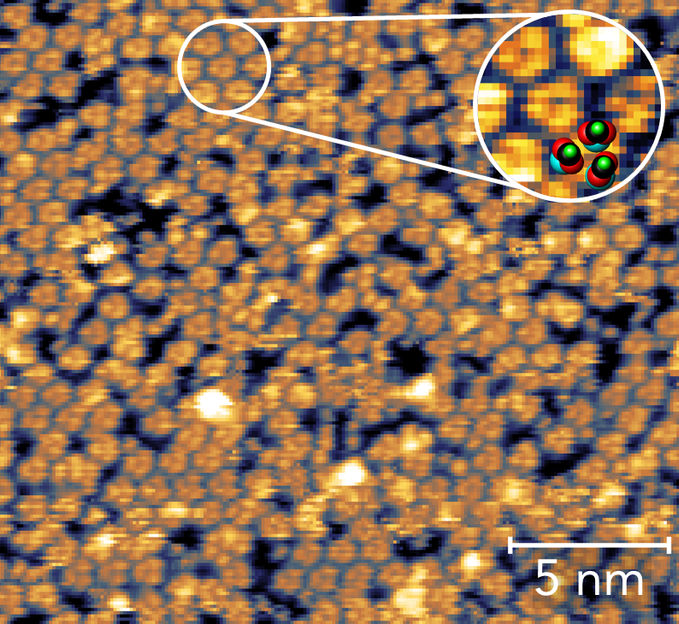'Sifting' liquid at the molecular level
Drexel University engineers develop method for using nanotubes to separate liquids
Drexel University engineers continue to drive research into the use of carbon nanotubes, straw-like structures that are more than 1,000 times thinner than a single human hair. Their most recent development uses the tiny tubes to separate liquids within a solution.
The researchers have shown that individual carbon nanotubes can act as a separation channel that would force two differing molecules to separate as easily as oil and water. For example, the molecules that comprise two chemically distinct liquids will interact differently with the walls of the nanotube as the liquids flow through it. This will cause one of the liquids to drain through the nanoscale straw faster than the other, thus forcing a separation between the two liquids.
This technology could prove useful in a number of applications, including forensic studies with very small sample sizes and studying molecules extracted from individual cells. Forensic experts would be able to analyze trace evidence, even down to a single cell or invisible stains.
"We believe that this research will lead to development of tools for analysis on single living cells and push the limits of analytical chemistry to even smaller scales and to single organelle columns," said Dr. Yury Gogotsi, director of the A.J. Drexel Nanotechnology Institute.
Gogotsi and Dr. Gary Friedman, director of the Drexel Plasma Medicine Lab and a professor of electrical and computer engineering, were the lead researchers on a study about applications of nanotubes for cellular chromatography that was recently published in Nature Publishing Group's Scientific Reports. The research was funded by a grant from W.M. Keck Foundation and the National Science Foundation's National Interdisciplinary Research Teams program.
The carbon nanotubes used in this study measure as small as 70 nanometers in outer diameter and are currently the smallest chromatography columns ever made. The carbon nanotube columns are mechanically robust and are able to withstand repeated bending and compression. These characteristics are vital for applications at the cellular level, as the tiny tubes' durability allows them to penetrate cell membranes.
Continued nanotube research by Drexel engineers will examine the development of electrochemical and optical tools.
Other news from the department science

Get the chemical industry in your inbox
By submitting this form you agree that LUMITOS AG will send you the newsletter(s) selected above by email. Your data will not be passed on to third parties. Your data will be stored and processed in accordance with our data protection regulations. LUMITOS may contact you by email for the purpose of advertising or market and opinion surveys. You can revoke your consent at any time without giving reasons to LUMITOS AG, Ernst-Augustin-Str. 2, 12489 Berlin, Germany or by e-mail at revoke@lumitos.com with effect for the future. In addition, each email contains a link to unsubscribe from the corresponding newsletter.
Most read news
More news from our other portals
Last viewed contents
Sunil_Industry
BASF boosts capacity for highly chromatic yellow pigments
New flow battery could enable cheaper energy storage - Design may support widespread use of solar and wind energy
Thermo Fisher Scientific Launches Program to Meet Melamine Detection Challenges




























































